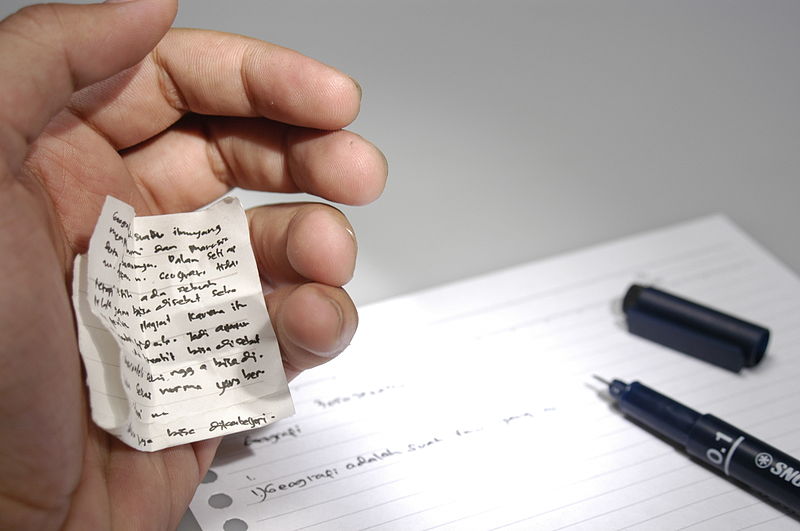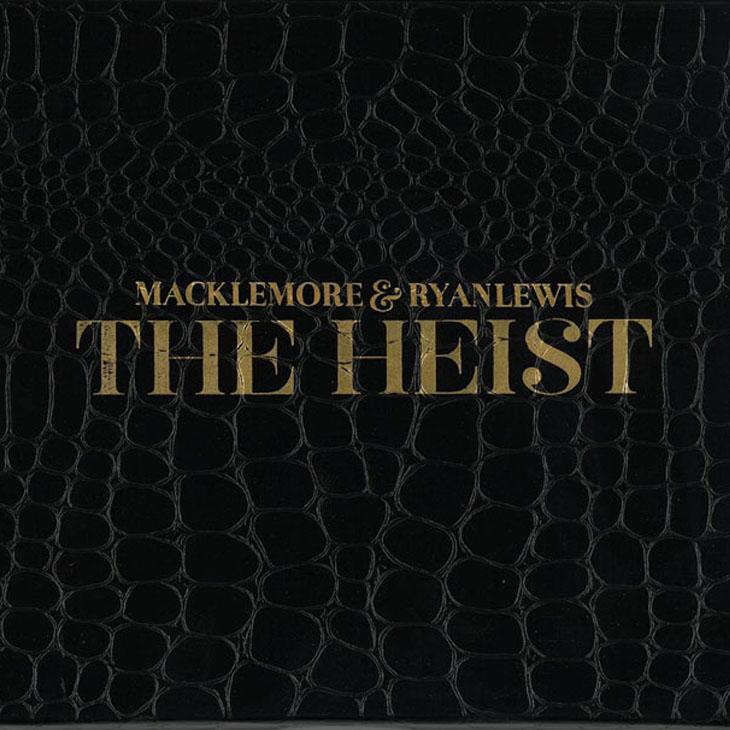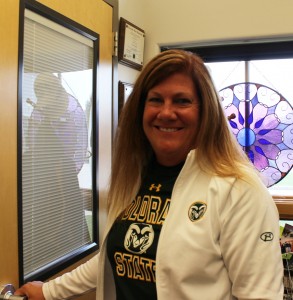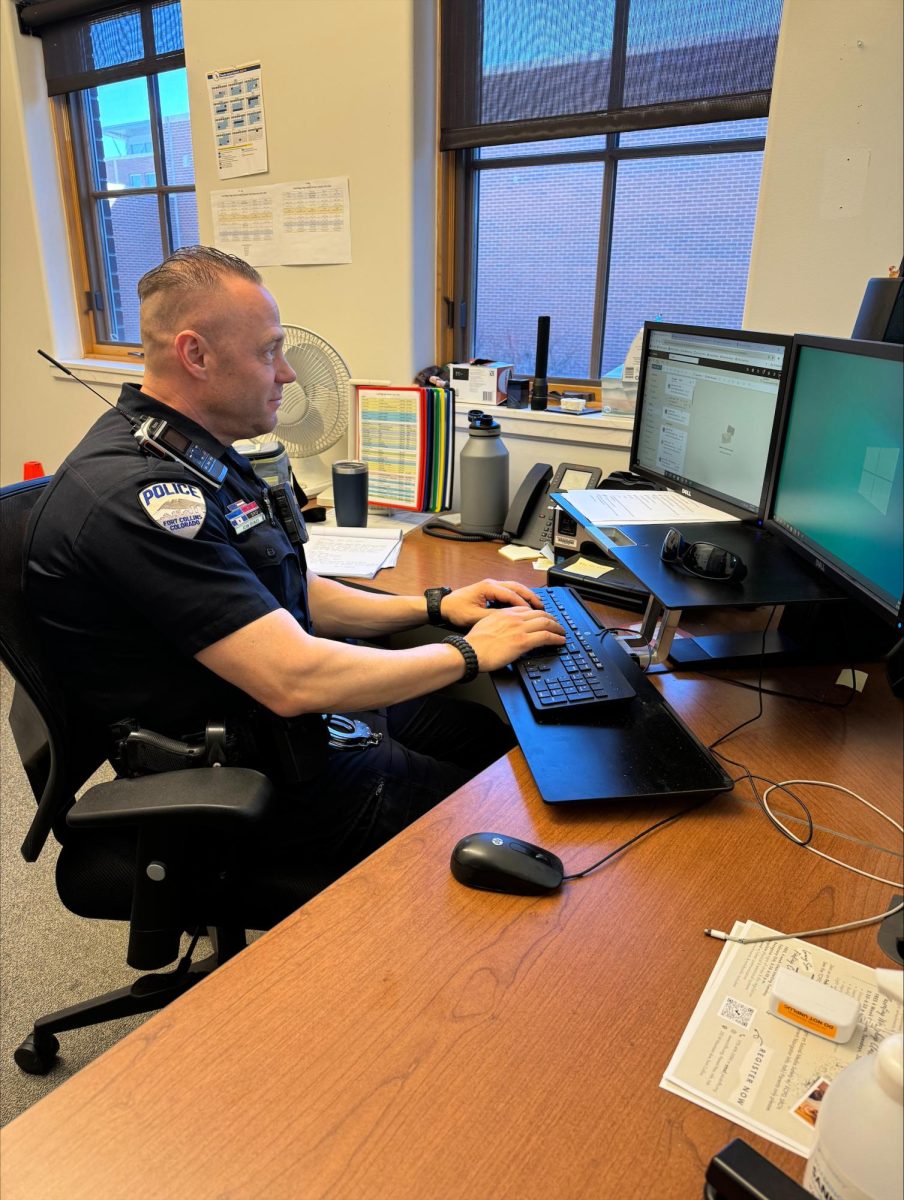
A recent survey that asked students from each grade level whether or not they had ever participated in cheating revealed that 91 percent of students at Fossil Ridge High School have participated in academic dishonesty at least once. The survey, which asked 89 FRHS students how often they have participated in academic dishonesty, also revealed that 35 percent of FRHS students have participated in cheating four times or more.
The survey asked if students had participated in each of the six examples of academic dishonesty outlined in the Fossil Ridge Student Handbook (including copying answers and plagiarism), and on how many occasions students had cheated. The academic dishonesty policy delegates the school the ability to administer a three-day suspension after a second offense, an “F” in the class after a third offense, and recommendation for expulsion after a fourth offense.
The prevalence of cheating seems to increase with the more veteran the student at Fossil. In fact, only 20 percent of freshmen admitted to cheating three times or more, whereas nearly three out of four seniors (74 percent) admitted to cheating three times or more.
Two out of three students and 84 percent of seniors admitted to giving an assignment to another student to copy and submit as their own. This category includes many minor instances of cheating, such as giving a friend math homework to copy which is due for five points, right before class. But FRHS students admitted more serious offenses too. 51 percent admitted to participating in plagiarism, 49 percent admitted to cheating off of another student during a test or quiz, and 27 percent admitted to using a cell phone during a test.
Teachers are taking measures to combat cheating, especially plagiarism. “Students have to now submit, in most English classes, instead of taking paper essays, to SafeAssign through Blackboard which checks for plagiarism,” English teacher Darren Marshall said. “When students realize about SafeAssign, I think it actually limits cheating and plagiarism.”
But there is a discrepancy between the 51 percent that have admitted to plagiarism, and the 91 percent who have admitted to cheating in some other form. It’s as if the cheating policy and methods by teachers to combat cheating are more of a filter, because some perpetrators get caught, while many fly under the radar.
Survey results show that either many students are not being caught cheating, or many students who are caught are not referred for disciplinary action. “So far we have not gotten to the third offense,” said Dean of Students Julie Edler, “and we’ve only had a couple second offenses.” This account is quite contrary to the results of the survey, in which 65 percent of students admitted to cheating at least twice, and 51 percent admitted to cheating at least three times. This could be a result of how the policy is enforced, with communication and education being the first line of disciplinary action, rather than strict consequences. “Our first course of action is to talk to the student, the parents, and the teacher,” Edler said. “We’re not trying to set up a system of ‘gotcha’.”
The type of assignment given may constitute the amount of cheating. If 67 percent of students surveyed admitted to giving an assignment to another student to copy, but only 27 percent admitted to using a cell phone during a test, then the seriousness of the offense deters the student from partaking in it.
A possible solution to cheating is to change what questions teachers are asking when assessing their students. “If my test is so simple-minded that all the student has to do is look over to another student’s test for the answer,” said Marshall, “is it a test that is actually worth measuring anything?”
Cheating on multiple choice, matching, and true/false assessments is notoriously prevalent and difficult to catch, so, as Marshall points out, maybe the education itself is the issue. “If the quality of the education is simplistic, is cheating really the issue?”













Chandler Gould • Dec 5, 2012 at 9:38 am
This is great Elliot! It is a really informative, well-written piece!